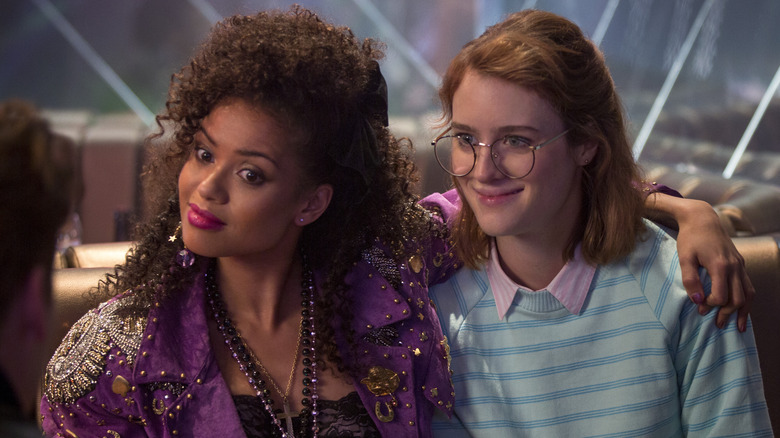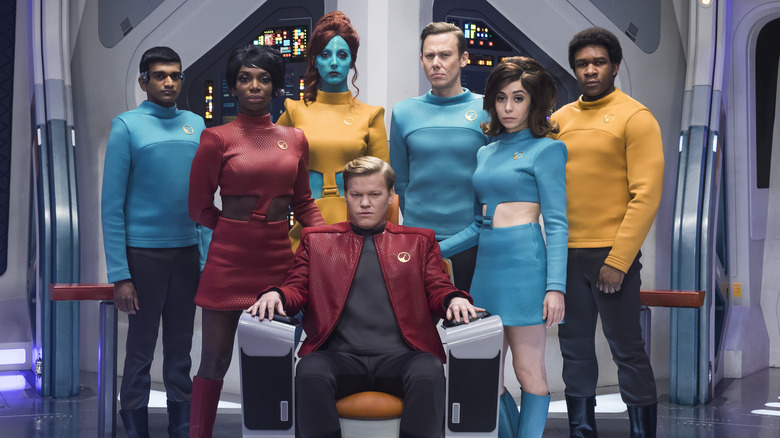Black Mirror: The Main Message Behind The Sci-Fi Anthology Series
"Black Mirror" takes the horror-laced science fiction anthology world to a place audiences haven't visited since "The Twilight Zone." The drama reflects all of the joys and sadness inherent in the tumult of survival. Whether it's recounting a tender romance undertaken by two women in a virtual space inhabited by the dead and dying ("San Junipero") or following the adventures of a programmer who boldly rebels against her boss while trying to find a way to escape from the video game in which her consciousness has been trapped ("USS Callister") it knows how to balance a variety of genres with effortless élan.
But what, in the end, is the series' mission statement? According to program creator Charlie Brooker, who wrote an article about "Black Mirror" for The Guardian in 2011 when the show first launched on Channel 4, his drama seeks to explore the void where technology and humanity collide. "This area — between delight and discomfort — is where 'Black Mirror,' my new drama series, is set. The 'black mirror' of the title is the one you'll find on every wall, on every desk, in the palm of every hand: the cold, shiny screen of a TV, a monitor, a smartphone," he explained. "Any TV, any LCD, any iPhone, any iPad ... if you just stare at it, it looks like a black mirror, and there's something cold and horrifying about that, and it was such a fitting title for the show."
Ergo, the series has always been dedicated to exploring all the social, moral, and spiritual dangers inherent in the fast-growing technological landscape in which we all live.
Black Mirror is about the horror - and absurdity - of technology in the modern era
Charlie Brooker also noted to The Guardian that "The Twilight Zone" inspired him to create "Black Mirror." His desire to create a series laden with surprises at every turn caused him to lean upon the anthology formula. He pointed out that Rod Serling's series never pulls its punches when exploring its sometimes terrifying worlds; its innocent heroes sometimes meet with terrible fates that are wholly unjust. Brooker also declared that Serling used his platform to spotlight real-life social issues such as racism, environmentalism, sexual harassment, and the horrors of corruption and greed.
"Black Mirror," in turn, has pointed out some modern issues which sadly don't run too far afield from Serling's milieu during the course of its six seasons. But the series' modernity takes it to places that "The Twilight Zone" could not during its own network run. Many characters dwelling in the wires and circuitry of "Black Mirror" yearn for real, human connections but cannot achieve them. Whether it's because technology cossets them into believing that science itself is enough, or because they cannot reach out and find another human due to the trickery of technology. They are hypnotized by their flat screens.
Expect Brooker's chilling version of the world's near future to continue apace when all five episodes of the latest season of "Black Mirror" hit Netflix on June 15.

